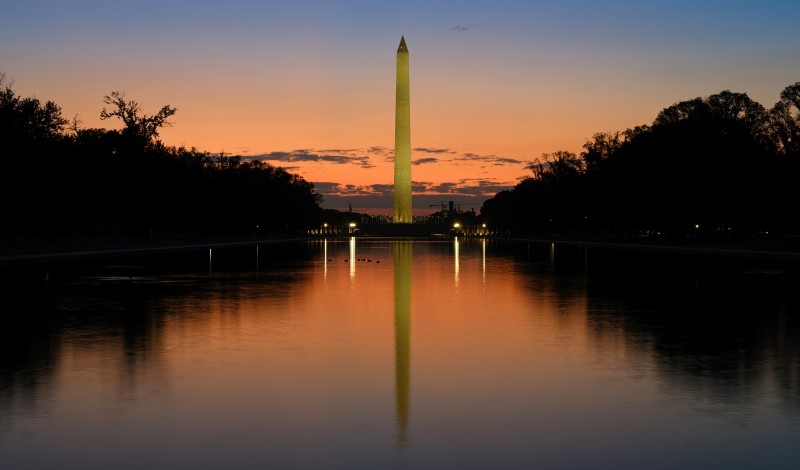
The Guarantee Clause is an untapped means of protecting Americans from anti-republican corporate behavior.
The U.S. Constitution requires the federal government to “guarantee” each state a republican form of governance. Uncertainty as to what that duty entails has rendered the Guarantee Clause a dormant source of constitutional protection. Unclear language, however, does not excuse allowing an important protection of self-governance to become dormant. Jurists, lawmakers, and other officials who have sworn an oath to uphold the Constitution, as well as scholars, do not have a choice to avoid its provisions merely because they are complex or vague. The obligation to faithfully interpret and enforce the Guarantee Clause is especially important given a threat to core republican ideals that the Founders did not anticipate—what the Brookings Institution has aptly described as the “global goliaths of modern times”—today’s multinational corporation.
What duty the Guarantee Clause imposes is the subject of a 235-year debate. Courts have long dodged resolving the Clause’s ambiguity. Judicial avoidance is justified as judicial humility, which counsels courts not to answer political questions. Some scholars, by contrast, have suggested that the duty may compel even such ambitious results as protecting a right to high-quality public education and shielding states from federal regulation.
The potentially bold and broad interpretations that the Clause may invite explain its dormant status. Recognition of the Guarantee Clause as a duty to insist upon any rational conception of republicanism could lead to a rash of interventions by courts, Congress, or the President into state affairs. In an article arguing for greater use of the Guarantee Clause, Kip M. Hustace, a professor at Seattle University School of Law, suggests that “we ignore the republican guarantee because it imposes an obligation to bring about a demanding republicanism.”
A narrower definition of republicanism grounded in the social and legal context of the Founding Era may end an era of problematic constitutional neglect. A consensus understanding of at least part of the duty imposed by the Guarantee Clause cannot wait. The increasing domination of massive corporations over the economic and social lives of everyday Americans warrants a reexamination and resolution of the meaning of the Clause.
One novel but persuasive way to understand the Clause is as embodying an “Antitrust Guarantee.” The core of republican self-governance is freedom from dependence. Any actor—public or private—that imperils the ability of individuals to operate as free agents undermines that foundational republican ideal. Several multinational corporations—most notably Amazon, Apple, Google, and Meta, or the “Big Four”—do just that. A state that fails to rein in such threats to republican self-governance triggers the Guarantee Clause. Although a full analysis of this straightforward understanding and application of the Clause exceeds the scope of this essay, scholars and defenders of republican self-governance should consider it.
Freedom from dependence characterized the transition from rule under King George to rule by the people. At the time of the American Revolution, legal and social conventions reflected a number of relationships in which certain individuals were dependents—subject to the will of another person or authority. Paupers were dependents of the towns providing them with shelter. Wives and children were dependents of the male heads of the families. Workers were dependents of their employers. Colonists were dependents of their King. Independence served to sever some of these forms of dependence.
In an article addressing the history of dependency and republicanism, Robert J. Steinfeld, a professor emeritus at the University of Buffalo School of Law, notes that “the traditional political concept of ruler and subject did not survive the American Revolution.”
At least it was not intended to under republican self-governance. Individuals unbeholden to the will of another—free agents—formed the basis of the nascent nation’s republican political community. Workers freed from the will of employers and bound only by the terms of an explicit contract, for example, soon joined that community. This concept of free agency shaped early debates and policy decisions related to expanding the nation’s republican community. A straightforward principle guided those deliberations: “Americans had established the self-governing people as the ultimate source of political order.”
That conception of republican liberty—and self-governance more generally—is under threat. In the same way that John Adams feared political participation by men who “talk and vote as they are directed by some man of property, who has attached their minds to his interests,” there is plenty of cause for concern that multinational corporations such as Amazon, Apple, Google, and Meta threaten our status as free agents. A hearing the U.S. House of Representatives Judiciary Subcommittee on the Administrative State, Regulatory Reform, and Antitrust held revealed the extent to which those companies shape public discourse and, by extension, steer individual thinking—both actions in direct opposition to republican self-governance.
The hearings also showed that many Americans are effectively dependents of these companies. U.S. Representative David N. Cicilline (D-RI), Subcommittee Chair, made this point clear by reviewing the Subcommittee’s key findings in his opening statement, in which he argued that “any single action by one of these companies can affect hundreds of millions of us in profound and lasting ways.”
The Subcommittee’s findings have numerous statutory ramifications. For instance, they undergirded a recent decision by U.S. District Judge Amit P. Mehta, which held that Google is a monopoly under Section Two of the Sherman Act. The legal ramifications, however, of these practices do not end there—or at least they do not under a faithful application of the Antitrust Guarantee. The Constitution provides all Americans with another means of protection against actors that imperil their ability to self-govern.
Under the Antitrust Guarantee, the federal government must insist that states with legal authority over these corporations prevent them from infringing on the republican liberty of others.
These corporations did not exist in the state of nature. They are creations of state government—in most cases, Delaware. Along with approximately 300 other Fortune 500 companies registered in the state, the Big Four have turned to the anti-republican laws of Delaware for their legal creation. It is easy to see why they have flocked to this state in particular. Delaware not only has lax charter requirements but is also unable to meaningfully enforce those requirements on the 1.4 million companies incorporated there. Corporations such as the Big Four, in turn, have broad and excessive authority to act in whatever way they see fit. As outlined by the Subcommittee, this discretion often comes at great cost to the agency of other Americans. Residents of other states have no real means to shield themselves from the tremendous power of these companies to dictate core parts of their daily lives.
How exactly the federal government should fulfill the Antitrust Guarantee in this context is worthy of additional scholarship. To jumpstart that process, I will share one proposal I am considering—Congress’s insisting on state enforcement of minimum charter provisions for all corporations engaged in interstate commerce. Numerous other interventions may satisfy the federal government’s obligations. The key takeaway is that the government has a duty to look beyond the Sherman Act, Clayton Act, and other antitrust statutory provisions when corporations act in anti-republican ways.
To paraphrase Justice Louis Brandeis, we can have a republican form of governance in this country, or we can have great wealth concentrated in the hands of a few, but we cannot have both. The Constitution obligates the federal government to pick the former over the latter. As radical as this Antitrust Guarantee may seem today as a result of the Guarantee Clause’s lying dormant, it comports with the understanding of many Founders. For instance, Thomas Jefferson “believed that to enjoy the freedoms that rights protected required constant government intervention in society and the economy. Otherwise, economic, political, and religious liberty would be empty promises.”
The Guarantee Clause is currently one such empty promise. Corporations wielding unchecked power have made millions of Americans dependent on them for essential news and products. Antitrust statutes are not the sole means of responding to such behavior and, in some cases, may not reach such behavior. Realization of the Antitrust Guarantee, however, would prevent single states such as Delaware from subjecting the rest of America to the negative consequences of anti-republican laws.




